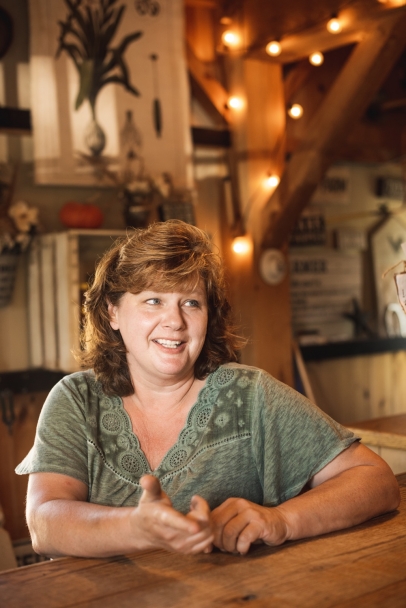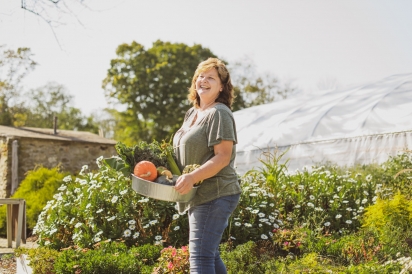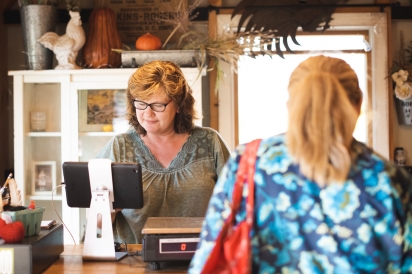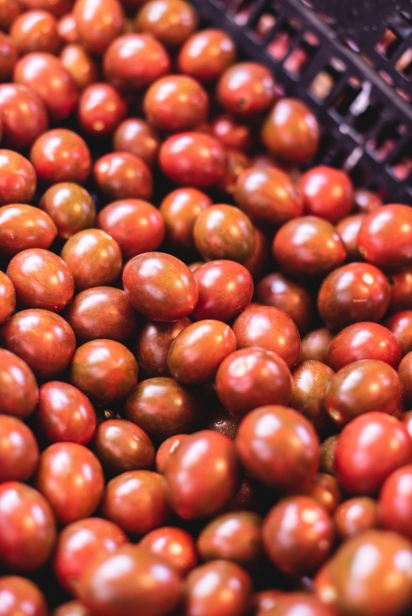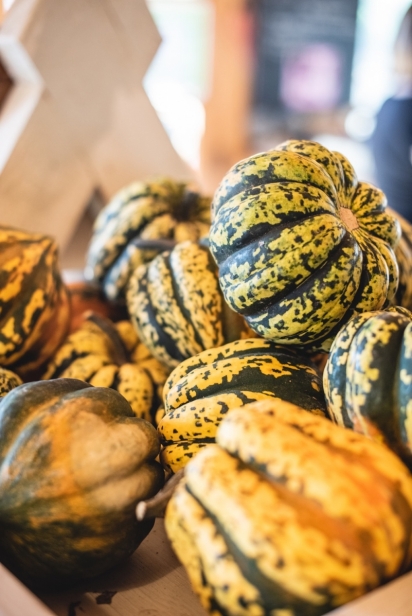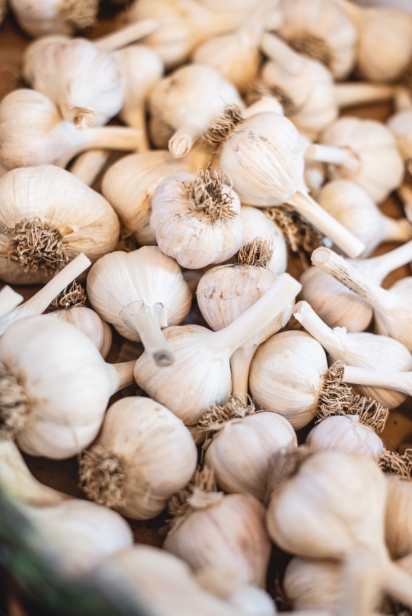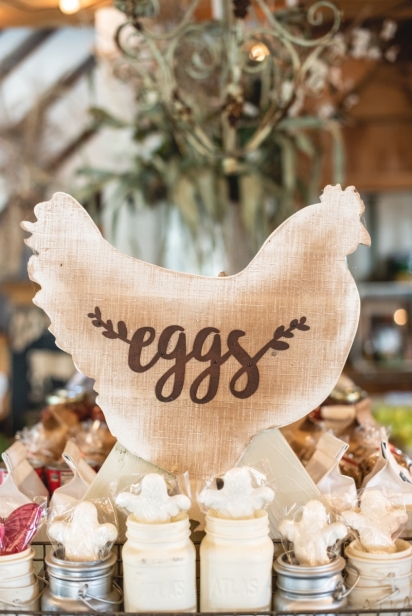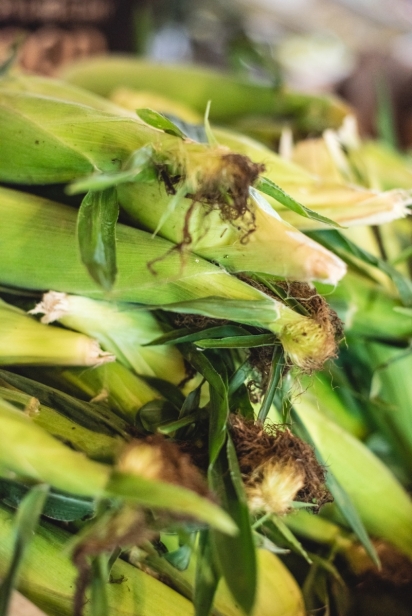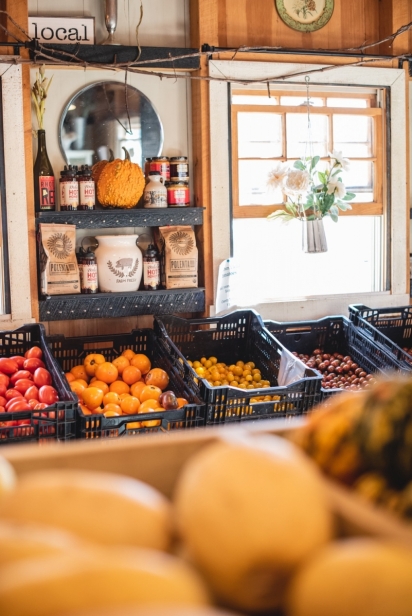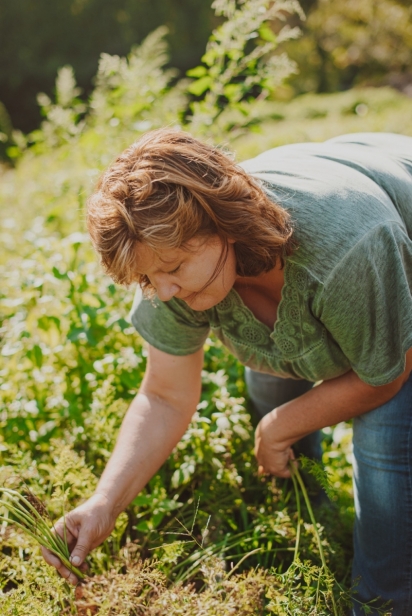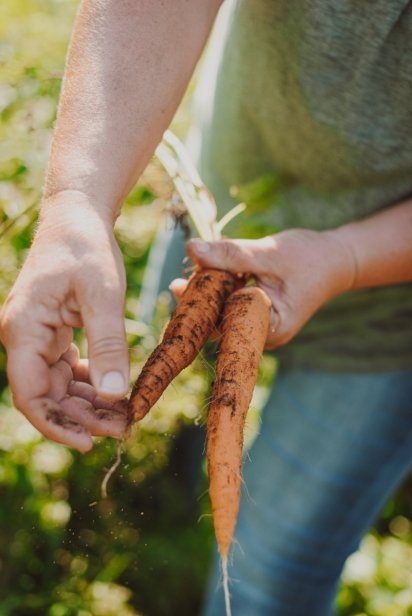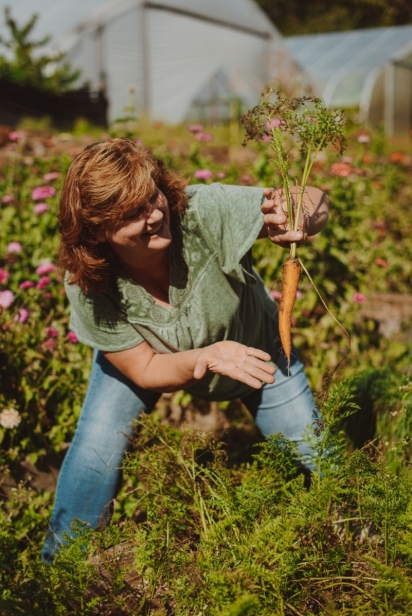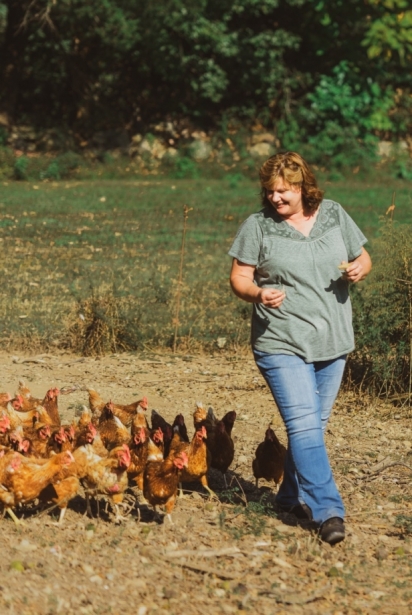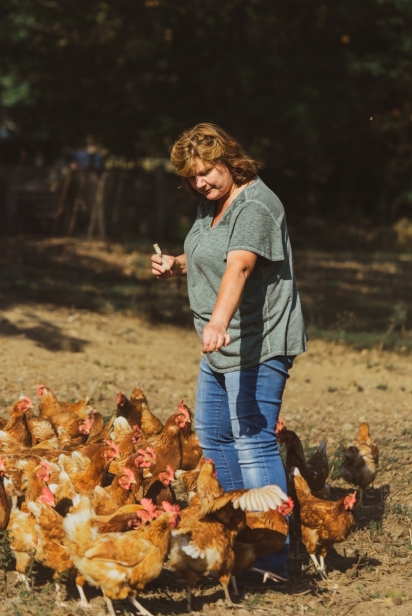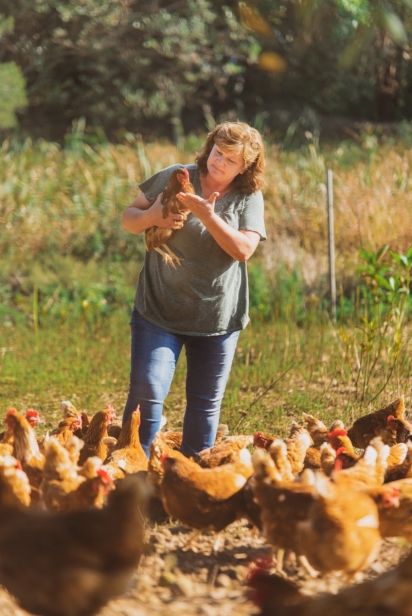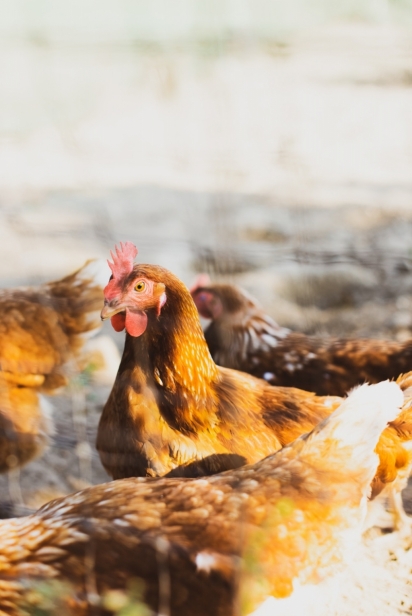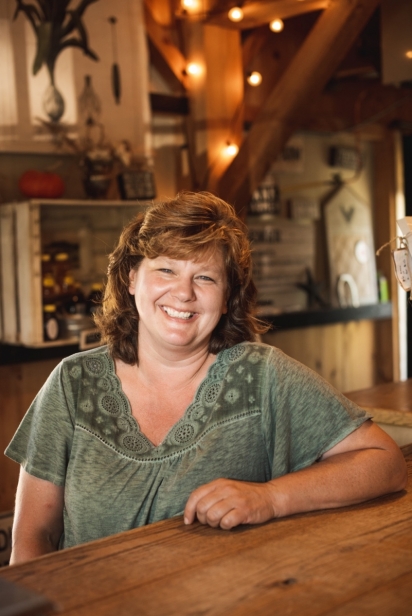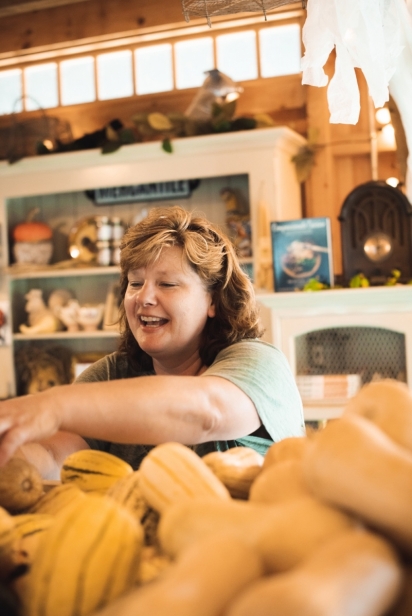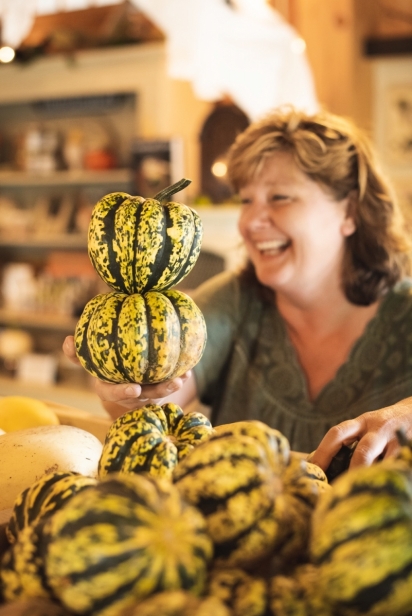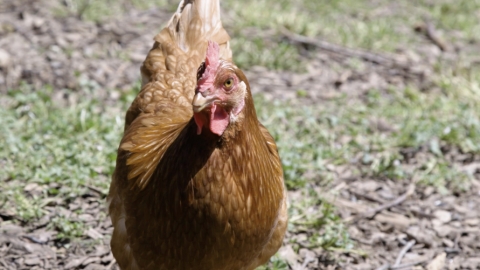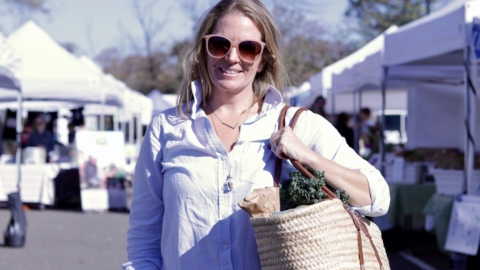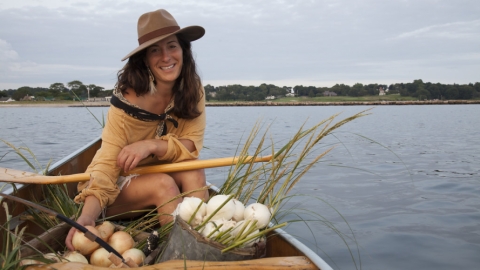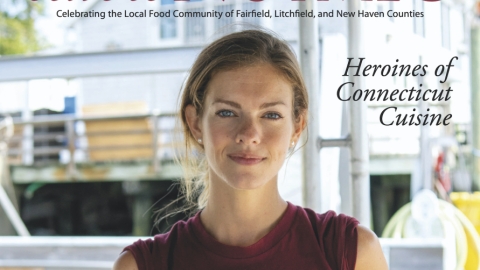Patti Popp and Sport Hill Farm
On a sun-toasted fall afternoon, Patti Popp’s Sport Hill Farm market, behind her refurbished 1740’s home in Easton, Connecticut, is bustling. Wood crates overflow with textbook-quality produce – leafy swiss chard, heirloom tomatoes, and purple-veined bok choy – and customers are filling their bags. Reading glasses perched atop wild red hair and her signature, irrepressible laugh filling the air, Popp rings up shoppers at the register while pointing out a new type of squash to a regular customer. Then, once everyone is taken care of, she is off in a flash to feed her Rhode Island Red chickens some holey kale that hadn’t made the cut for the shop. Popp is a woman on the move.
Established nearly two decades ago and on only a few acres, Popp started Sport Hill Farm, well, sort of on a whim, but also from a gut feeling and an insatiable curiosity. “When I first started, I had no idea what I was doing,” Popp admits, with a smile. “I would set up my little vegetable stand, sit out here for hours, and no one would come. It was really hard, but it was all a learning experience.”
Teaching herself how to farm in a sustainable way — natural, nutrient-dense crops that are grown without the use of harmful pesticides — wasn’t Popp’s only challenge. Not from a farming family or background, this “accidental farmer” was new on the scene in an otherwise staid, established agricultural town, and Popp was the only woman in the business. At the time, she was also mother of two young boys and worked full time for an orthopedic surgeon. But she persevered, through trial and error, and people started to take notice not only of the quality of her products, but also of the way she aimed at building community.
“I’m the unfiltered farm girl! I don’t like to sugar coat this industry. I’m big on education, and we run all kinds of events on the farm for fun and to bring people in,” Popp says, “but also to teach the value of good food and about what quality really is. I know it’s easier to run to [the grocery store] for items on your list during a busy week, so it’s the time and care that I focus on with people, so they understand what they’re eating, from seed to plate.”
Patti and her husband, Allan Popp, a landscaper and partner on the farm, could never have imaged, 19 years ago, that Sport Hill Farm would flourish into the 40 acres they now manage, where they grow over 100 varieties of non-GMO, sustainable produce and raise both chickens and pigs. Popp also offers a Crop Cash Choice program (similar to a subscribership or CSA, but where members are not locked into a weekly commitment and are able to choose what they wish to purchase), sells directly to local restaurants, and runs a summer farm camp and many other programs throughout the year that promote agriculture and the arts.
Much of Popp’s Sport Hill Farm is run “the old-fashioned way,” but by using both technology and ingenuity to send her message out to the community, it has been received loud and clear. In fact, in 2017, Popp was named one of Farmers’ Almanac’s “Farmers of the Year.” All entries were judged by representatives from the American Farm Bureau and on criteria such as tradition, innovation, community involvement, and inspiration.
Accolades aside, it’s the passion for the work and a strong belief that “food is medicine” that keeps her going. “As a survivor of thyroid cancer and of a brain aneurism, both within the time that I started farming, I am a big proponent of ‘you are what you eat,’” Popp says, pulling some carrots from a garden bed. “Now that is sexy!” she laughs, brushing dirt from their roots.
It was food and farming that helped heal her, but also the bonds she has formed with customers that pushes her forward. “I couldn’t have done it without the really wonderful community that surrounds us,” Popp says. “It’s just such an amazing thing, to watch a tiny seed in the dirt grow into something that then fuels people.”
There is a distinct sensibility brought by Popp that shapes the experience of touring Sport Hill Farm. It’s particular attentiveness to unique details that sets her operation apart — whether it be the layout of raised garden boxes, the well-kept rustic wood interior of the market, the decorative lights, or the gift merchandise that rounds out the store. “I care about the way things look and the experience people have in my shop,” Popp says. “I’m not going to just plop produce out in cardboard boxes.”
When asked what part of her farming day she prizes most, Popp says it has to be the morning. “I love those early hours, out harvesting in the quiet fields. It’s meditative. I feel a closeness to the seasons that I just didn’t have before I was farming. All those years that I was working, packing up the kids, and hustling out the door…it was this that I was missing.”
> Sport Hill Farm: 596 Sport Hill Rd., Easton; 203-268-3137


